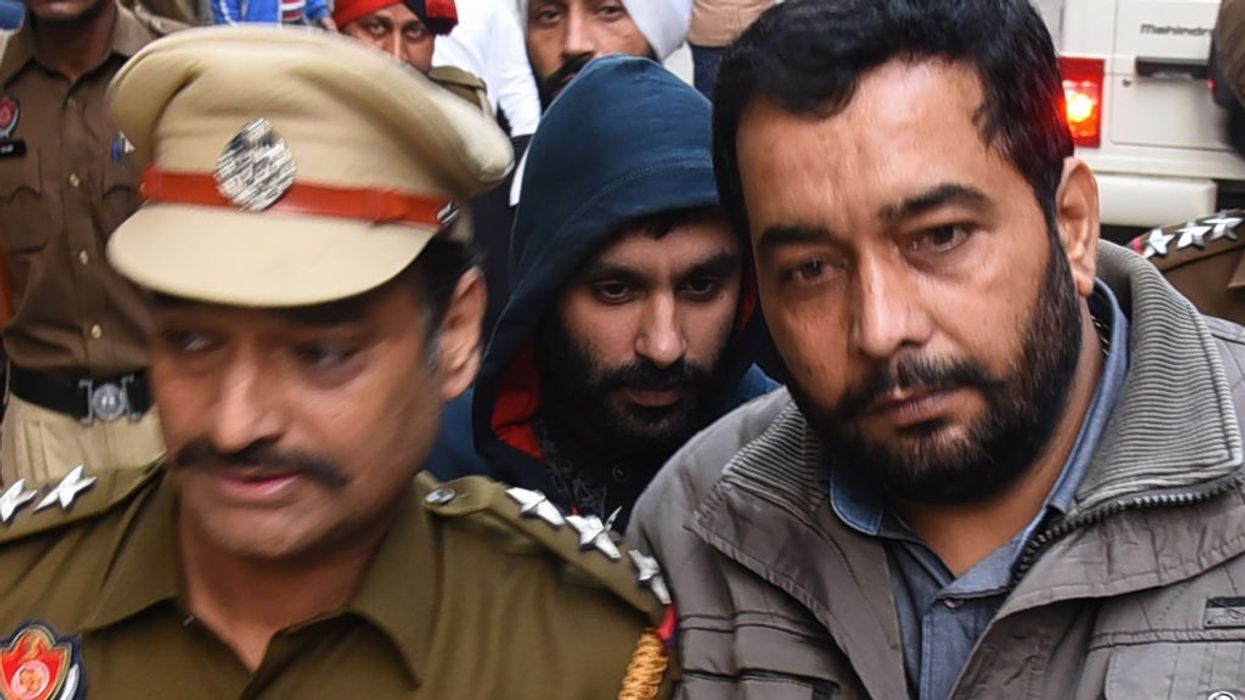THE family of a Scottish man who has been detained in India for six years has appealed to the new foreign secretary to intervene and potentially save his life.
Jagtar Singh Johal, a 36-year-old Sikh activist, faces terror charges in connection with political violence in India.
His family has written to Lord Cameron, requesting a meeting and calling for Johal's release. The UK government, while committing to resolving the case, has faced criticism for not taking stronger action.
Gurpreet Singh Johal, who is also a Labour councillor and a lawyer, expressed frustration at the challenges faced with each change in foreign secretary but reiterated his commitment to fighting for his brother's release.
"It's 2,208 days since my brother has been arbitrarily detained in an Indian jail and this government has failed. Last time I spoke with my brother was from prison on 18 October - his 6th wedding anniversary - when he seemed to be trying to put light at the end of the tunnel," Gurpreet told BBC Radio's Good Morning Scotland.
He added: "He was as well as he can be. He's hopeful that in the next six months or so he can at least be out on bail, but that's as much as I know.
"The bottom line is my brother's life depends on what David Cameron decides to do and whether he decides to call for Jagtar's release to bring him back home."
The family's plea to Cameron emphasises the potential impact of the foreign secretary's intervention on Johal's life.
Johal, a resident of Dumbarton, west Dunbartonshire, was arrested in India in November 2017, shortly after his wedding.
He is currently facing eight charges of conspiracy to murder related to political violence in India. Allegations of torture and human rights violations during Johal's detention have been made by a cross-party group of MPs, although these claims have been denied by Indian authorities.
Johal's trial for the most serious charges began in 2022, but he has not yet been convicted of any crime.
Last year, a UN panel of human rights experts declared his detention arbitrary, lacking legal basis, and called for his release. The case has strained diplomatic relations, with concerns raised about the lack of progress and the potential implications for Johal, including the death penalty.
While previous foreign secretaries, including James Cleverly, have engaged with Johal's case, the family hopes that Cameron will take more decisive action.
Cameron, who served as prime minister from 2010 to 2016, is seen as having the potential to leverage the UK's longstanding relationship with India and his personal connections with its leaders to seek Jagtar's release.
The family's letter highlights the need for urgent and robust action to address the politically motivated charges against Johal.
According to Johal's lawyer, a total 11 cases have been registered against him, eight of which are being investigated by the National Investigation Agency (NIA), two by Punjab Police and one by Delhi Police Special Cell.
“The UK government is committed to seeing Johal’s case resolved as soon as possible,” a spokesperson said.
“We continue to provide consular assistance to Johal and his family and have consistently raised his case directly with the government of India.”





